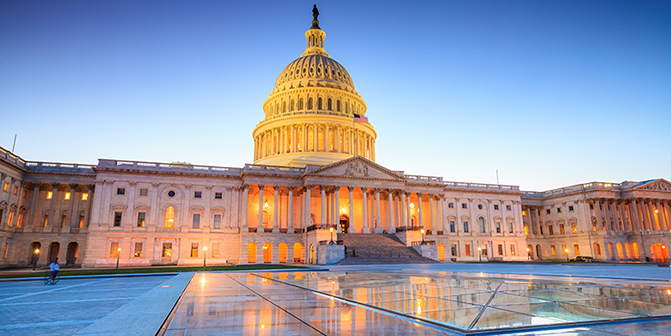H.R. 873 – Energy Efficiency Improvement Act of 2015

H.R. 873 – Energy Efficiency Improvement Act of 2015
The Energy Efficiency Improvement Act of 2015 (H.R. 873) was introduced in the U.S. House of Representatives by Rep. David McKinley (R-W.Va.) and was co-sponsored by Rep. Peter Welch (D-Vt.) on February 11, 2015. Both Rep. McKinley and Rep. Welch are Alliance Honorary Board Members. The main purpose of this bill is to promote energy efficiency. It combines three proposed bills (Better Buildings Act, H.R. 1268, and H.R. 1867) into one bill. The Better Buildings Act was originally proposed in May 2013 and has since been updated. Most recently, provisions from H.R. 1268 were included in Section 3111 of H.R. 8, the House’s comprehensive energy bill.
Better Buildings Act of 2015
The Better Buildings Act of 2015 deals with several items. First, the Administrator of General Services would have to develop model commercial leasing provisions and best practices to encourage building owners and tenants to invest in cost-effective energy efficiency and water efficiency measures. Second, the Secretary of Energy would have to complete a study on the ability to improve energy efficiency in commercial buildings by encouraging owners and tenants to design and construct separate spaces and implement high-performance energy efficiency measures in these spaces. Finally, the Administrator of the Environmental Protection Agency and the Secretary would have to work together to develop a voluntary program within the ENERGY STAR Program that promotes energy efficiency in separate spaces leased by tenants or otherwise occupied within commercial buildings.
H.R. 1268: Energy Efficient Government Technology Act
This bill would amend the Energy Independence and Security Act of 2007 regarding energy-efficient and energy-saving information technologies and stakeholder engagement. It would also create data centers that collect energy use and efficiency opportunity data. Federal agencies would have to develop an implementation strategy that includes best practices and measurement and verification techniques for maintaining, purchasing, and using the energy-efficient and energy-saving information technologies that these agencies acquire. The Secretary of Energy would have to maintain a data center energy practitioner program that certifies individuals in evaluating energy use and efficiency opportunities in federal data centers.
H.R. 1867: Energy Information for Commercial Buildings
This portion of the bill would amend the Energy Independence and Security Act of 2007 to require federal agencies that have entered into a contract to lease Energy Star certified space to complete two requirements no later than one year after signing the contract. First, the space must be renovated for all energy efficiency and conservation improvements that would be cost effective over the life of the lease. Second, the space must be benchmarked under a nationally recognized, online, free benchmarking program, with public disclosure.
STAY EMPOWERED
Help the Alliance advocate for policies to use energy more efficiently – supporting job creation, reduced emissions, and lower costs. Contact your member of Congress.
Energy efficiency is smart, nonpartisan, and practical. So are we. Our strength comes from an unparalleled group of Alliance Associates working collaboratively under the Alliance umbrella to pave the way for energy efficiency gains.
The power of efficiency is in your hands. Supporting the Alliance means supporting a vision for using energy more productively to achieve economic growth, a cleaner environment, and greater energy security, affordability, and reliability.



